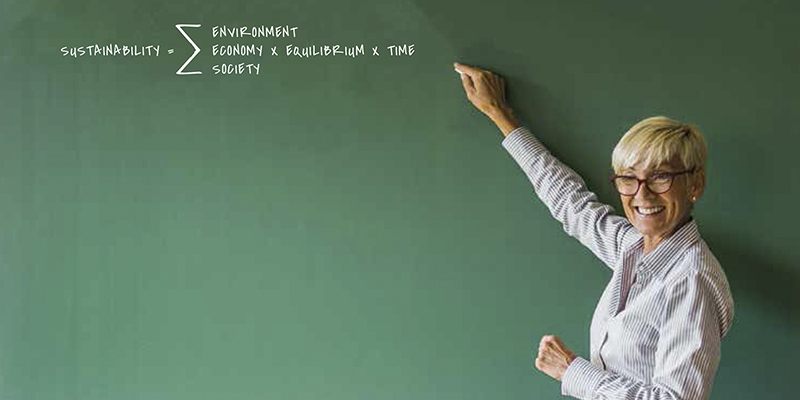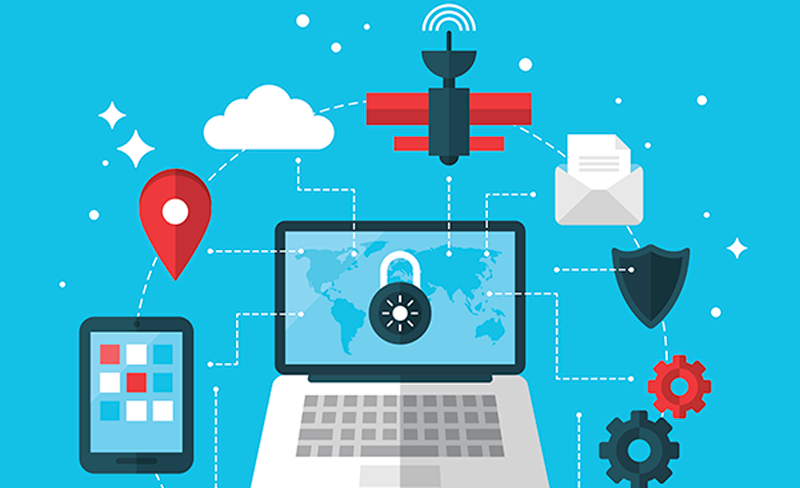You must have heard a lot of talk about sustainability lately. In the newspapers, on television and social media there are continuously news items on this subject, global warming, the melting of the polar ice caps, etc. We now witness natural disasters such as major storms, floods or raging fires so frequently that we are starting to consider them everyday occurrences, rather than extraordinary events. Even so, there is still some confusion about what sustainability actually is, as this term has traditionally been solely associated with environmental aspects, an association that is true, yet incomplete in equal measure.
TEXT MIQUEL VADELL | PHOTOGRAPHS ISTOCK
Sustainability consists of two concepts and three aspects. Equilibrium and time are the concepts, while the environment, economy and society are the three aspects, as depicted in the formula on the board.
It relies on a lasting equilibrium between the three aspects (environmental, social and economic), given that, together, they form a gear mechanism that cannot function properly if any of the parts does not mesh or is not greased correctly. These three gears are interdependent; they are intimately connected, with the result that one of them being oversized can easily prove detrimental to the others.
A clear example of this interrelationship is the felling of trees: it generates employment and economic wealth, but at the expense of biodiversity (environmental) loss. Another example, perhaps not so trite or obvious, is promoting the purchase of low-cost imported products; while generating savings for consumers, it leads to the economic decline of local producers.
Neither of these examples, in isolation, can be taken as an example of unsustainability, given that both regulated logging and the purchase of imported products are necessary to satisfy society’s needs. The key is that any model needs to be as balanced as possible, generating economic, social and environmental well-being.
As we can see, above all else, sustainability is a complex (though not complicated) matter. And despite this complexity, it is the only way for the seven billion-plus inhabitants of this planet with limited resources to manage to live together in peace.
Only too aware of this panorama, 1945 saw the founding of the United Nations (UN), the largest international organization that exists. 70 years later, in 2015, the UN launched the 17 Sustainable Development Goals (SDGs) which lay out 169 targets to ensure all societies around the world can achieve sustainable development in these three aspects. The SDGs issue an appeal not only to the public sector, but also to the private sector, the academic sector and the third sector (non-profit organizations), for them to collaborate and work together to achieve these 17 goals.
The SDGs set the deadline for the year 2030, just fifteen years to achieve goals such as literacy for all human beings, a global reduction of unemployment, corruption and bribery in all its forms, etc. These goals are indeed ambitious, but also achievable, depending on the will of those involved; but above all, they are absolutely necessary.
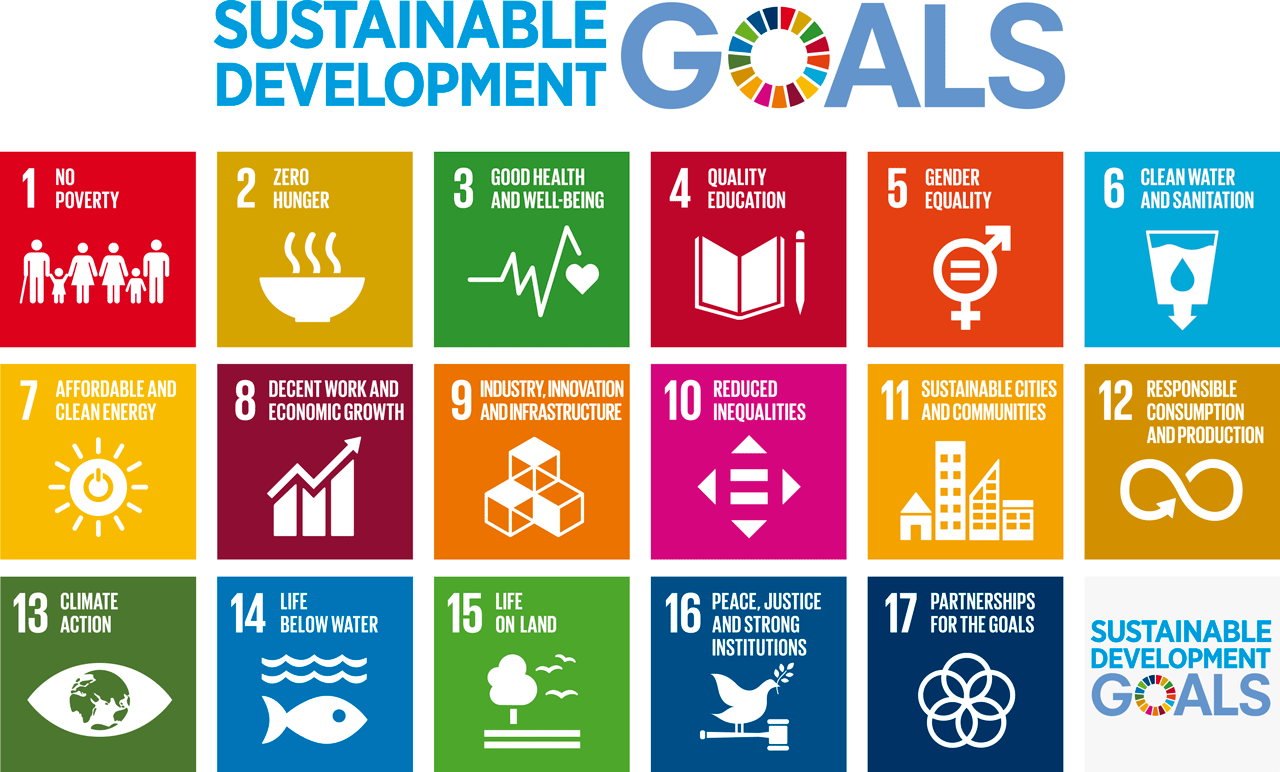
And what can I do?
In this complex panorama calling for the intervention of governments, businesses, institutions, etc., it seems that the promotion of sustainable development is exclusively their responsibility, as we tend to believe that actions at the individual level are of little use. Nothing could be further from the truth. At the individual level, we are the ones who make up communities, families, companies, organizations, governments, etc. We are the nuclear unit and everything starts with our actions.
Our contribution consists in sowing the seed that, along with all the others, can really make a difference. All working together to achieve the same goal, setting aside the differences that separate us and focusing on what really matters: a future for us all.
Each individual fulfills several different functions in their daily lives through which they can act: as a family member (son, sister, mother), as an employee, employer, friend, neighbor, customer, etc.; and in each of these roles we can carry out actions that foster the sustainable development of our society.
There now follow some examples of attitudes and habits that you can adopt in your daily routine:
In society, in our role as a family member, friend, neighbor, citizen, etc., our actions will be designed to raise awareness and lead by example. Conveying notions is just as important here as our sustainable practices.

EDUCATING THE CHILDREN
 The new generations are the ones who, unfortunately, will suffer the consequences of previous generations’ actions and yet, at the same time, they are our greatest hope for change. That is why it is essential to educate them in sustainable values, such as the conscious use of resources, collaboration rather than competition, altruism, etc. Any conduct by their educators will be replicated by children.
The new generations are the ones who, unfortunately, will suffer the consequences of previous generations’ actions and yet, at the same time, they are our greatest hope for change. That is why it is essential to educate them in sustainable values, such as the conscious use of resources, collaboration rather than competition, altruism, etc. Any conduct by their educators will be replicated by children.
VOLUNTEERING
 Collaborating and engaging with the neediest social strata is a perfect example of sustainable behavior, given that, for a society to progress, all the social classes must progress together. There are numerous ways to collaborate at both the personal level and through the company where we work.
Collaborating and engaging with the neediest social strata is a perfect example of sustainable behavior, given that, for a society to progress, all the social classes must progress together. There are numerous ways to collaborate at both the personal level and through the company where we work.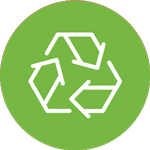
RECYCLING
 This is certainly the most easily identifiable sustainability issue. However, we should not focus solely on garbage separation; rather, taking a broader view, we should also consider recycling garments, furniture or other materials that may possibly have a second life after becoming unusable for their intended function (e.g. turning our old clothes into cleaning rags).
This is certainly the most easily identifiable sustainability issue. However, we should not focus solely on garbage separation; rather, taking a broader view, we should also consider recycling garments, furniture or other materials that may possibly have a second life after becoming unusable for their intended function (e.g. turning our old clothes into cleaning rags).As consumers, paying for products and services is one of the most common actions throughout our adult life; above all else, we have become creatures of consumerism. That is why consuming responsibly is so important.
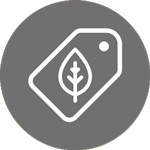
LOCAL BUSINESS AND FAIR TRADE
 Supporting local businesses by purchasing products and services from companies with appropriate labor and environmental standards serves to strengthen the local business fabric and promote their products. We must dispel the myth that sustainable consumption is always more expensive; find those items you can afford and incorporate them into your shopping routine. Special mention at this point must go to food, one of the greatest sources of pollutants. A diet based on fruit, vegetables and legumes is more sustainable than one based on animal protein. In addition, avoiding food going to waste – something that can entail a major change of habits – is a highly significant step too.
Supporting local businesses by purchasing products and services from companies with appropriate labor and environmental standards serves to strengthen the local business fabric and promote their products. We must dispel the myth that sustainable consumption is always more expensive; find those items you can afford and incorporate them into your shopping routine. Special mention at this point must go to food, one of the greatest sources of pollutants. A diet based on fruit, vegetables and legumes is more sustainable than one based on animal protein. In addition, avoiding food going to waste – something that can entail a major change of habits – is a highly significant step too.
SECOND HAND
 Reusing articles is one of the best-known and most effective precepts of sustainability; promoting the acquisition of items to give them a second life avoids excessive consumption and reduces the amount of waste we produce.
Reusing articles is one of the best-known and most effective precepts of sustainability; promoting the acquisition of items to give them a second life avoids excessive consumption and reduces the amount of waste we produce.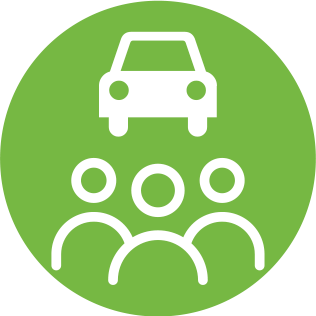
TRANSPORT AND ENERGY
 Another key sustainability issue, given that they are the two main sources of CO2 emissions. Nowadays, it is very easy to find distributors that only sell electricity from renewable energy sources. As regards transport, it is worth taking a look at our daily routines to see if we could possibly replace more polluting means of transport (private car) with other less polluting alternatives: bus, bike, car sharing, electric vehicles, etc.
Another key sustainability issue, given that they are the two main sources of CO2 emissions. Nowadays, it is very easy to find distributors that only sell electricity from renewable energy sources. As regards transport, it is worth taking a look at our daily routines to see if we could possibly replace more polluting means of transport (private car) with other less polluting alternatives: bus, bike, car sharing, electric vehicles, etc.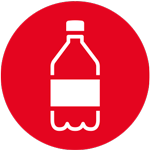
NEED
 As consumers, we must assess – pausing to reflect on the question – whether what we are going to acquire is really a necessity or whether, on the contrary, we could actually do without it or find a more sustainable alternative.
As consumers, we must assess – pausing to reflect on the question – whether what we are going to acquire is really a necessity or whether, on the contrary, we could actually do without it or find a more sustainable alternative.As a professional, our work environment represents almost a third of our daily lives. For that reason, what better place to adopt practices that will result in more sustainable development?

GET INVOLVED IN INITIATIVES AND/OR PROMOTE THEM
 The vast majority of the actions in our private life are easily transferable to the context of our company. In MAPFRE, a large number of initiatives are always being undertaken. Find out about them, join in and promote them among your colleagues. To keep abreast of these activities, be sure to visit the corporate Intranet.
The vast majority of the actions in our private life are easily transferable to the context of our company. In MAPFRE, a large number of initiatives are always being undertaken. Find out about them, join in and promote them among your colleagues. To keep abreast of these activities, be sure to visit the corporate Intranet.
BOTH AT HOME AND AT WORK
 Bear in mind that most of the good practices you adopt in the personal sphere are easily transferable to the professional sphere, and vice versa!
Bear in mind that most of the good practices you adopt in the personal sphere are easily transferable to the professional sphere, and vice versa!
IF YOU SEE ANY IRRESPONSIBLE PRACTICE, REPORT IT
 We must not tolerate irresponsible behavior in our company and we should monitor compliance with ethical, labor or environmental standards.
We must not tolerate irresponsible behavior in our company and we should monitor compliance with ethical, labor or environmental standards.

VOLUNTEERING
 Despite the fact that it has already been mentioned in a previous section, it is worth stressing that MAPFRE offers great volunteering opportunities, given the company’s involvement in this area. If you have not already done so, visit https://voluntariosfundacionmapfre.org to find out what activities in your country you could participate in.
Despite the fact that it has already been mentioned in a previous section, it is worth stressing that MAPFRE offers great volunteering opportunities, given the company’s involvement in this area. If you have not already done so, visit https://voluntariosfundacionmapfre.org to find out what activities in your country you could participate in.
These examples are not the only things you can do – far from it. Seek information from reliable sources, adopt new sustainable routines and share them with those around you!
Overcome the resistance to change
In short, any change you want to make will call for some effort on your part, not just because of the change in routine, but also because adopting sustainable practices or behaviors may sometimes involve relinquishing certain conveniences. So, what’s in it for me? The answer is future, you ensure a future. As we mentioned at the beginning, sustainability has to do with a lasting equilibrium. Abandoning habits based on short-term comfort and focusing on the long term, on the future, is what being sustainable means. And not just for the future generations, but also for yourself, given that, with the current life expectancy, in the long term we will still be here, wanting to be able to keep living in the best possible manner.
#YOMEODSEO
On September 25, 2015, as part of a new sustainable development agenda, various world leaders set themselves a series of goals designed to ERADICATE POVERTY, PROTECT THE PLANET and GUARANTEE PROSPERITY.
Fully involved from the very outset in attaining these goals, MAPFRE joined in the celebrations of the fourth anniversary of this agreement in September. Among the initiatives in which we participated is the #ODSÉATE campaign. Promoted by the UN High Commissioner for the 2030 Agenda in Spain, this is a call to action to amplify this message in favor of a sustainable future. Thus, MAPFRE adopted the campaign’s image in its social media profiles and in its communications, disseminating a range of informative material on the SDGs, paying special attention to those most closely related to the company’s activities.
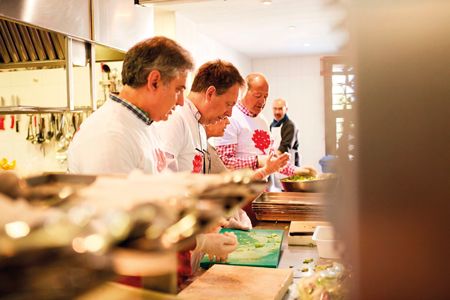
MAPFRE volunteers help prepare and distribute food in a soup kitchen.
In the same way, it invited its stakeholders, particularly its employees, to _ODSEARSE_, inventing this new Spanish verb to encourage people to share their personal commitment to the SDGs by posting photos and videos with the hashtag #YOMEODSEO.

